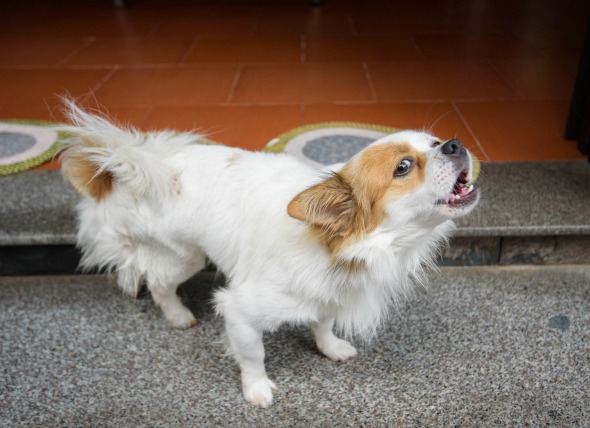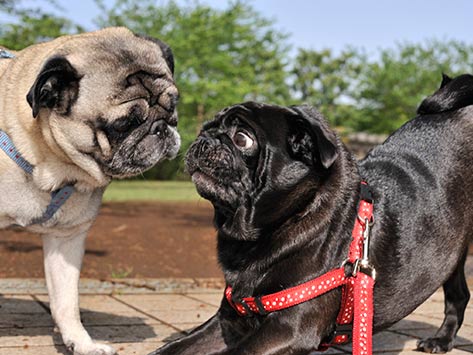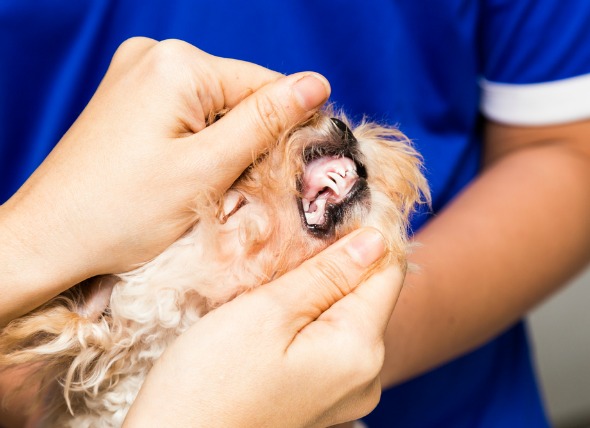
Ascariasis is a disease affecting dogs caused by the intestinal parasitic roundworm (or Ascaris lumbricoides). Roundworms are often quite large -- up to 10 to 12 centimeters in length -- and can be present in extremely high numbers within an infected animal. When they are found in a dog's body, it can lead to abdominal swelling (distension), colic, gastrointestinal issues and even intestinal rupture.
The condition or disease described in this medical article can affect both dogs and cats. If you would like to learn more about how this disease affects cats, please visit this page in the PetMD health library.
The following signs or symptoms are common in dogs that have roundworms:
Adult dogs can become infected through the ingestion of roundworm eggs, which are found in infected food, water, vomit, or feces. Pups can then contract the parasite during the pregnancy or by drinking the milk from an infected pregnant animal. And if one of the newborns in a litter is exposed to roundworms, the entire litter can contract the parasite.
Upon examination of the dog, a swollen abdominal region is commonly detected. There may also be signs of weakness and loss of appetite. A fecal swab will then be taken to detect the presence of roundworm eggs. Dead roundworms being passed out of the animal's body is another good indicator of the disease.
Treatment for roundworms is completed on an outpatient basis using specific drugs to kill the roundworms and the roundworm larvae. In severe cases, surgery may be performed to remove more of the roundworm matter.
It is very important to take the animal in for a repeat fecal examination to ensure that all of the roundworms, including the larvae, were eliminated from the dog's body.
There are no known preventative measures for roundworms.
 Transitional Cell Carcinoma of the Urinary Tract in Dogs
Transitional Cell Carcinoma of the Renal, Bladder and Ur
Transitional Cell Carcinoma of the Urinary Tract in Dogs
Transitional Cell Carcinoma of the Renal, Bladder and Ur
 Capillariasis in Dogs
Infection with Capillaria plica in Dogs
Capillari
Capillariasis in Dogs
Infection with Capillaria plica in Dogs
Capillari
 Excessive Vocalization in Dogs
Disruptive Crying, Whining and Barking in Dogs
Ex
Excessive Vocalization in Dogs
Disruptive Crying, Whining and Barking in Dogs
Ex
 Breeding Timing in Dogs
Breeding Timing To Maximize Fertility in Dogs
Bre
Breeding Timing in Dogs
Breeding Timing To Maximize Fertility in Dogs
Bre
 Cyst on the Gums in Dogs
Dentigerous Cyst in Dogs
A dentigerous cyst is, l
Cyst on the Gums in Dogs
Dentigerous Cyst in Dogs
A dentigerous cyst is, l
Copyright © 2005-2016 Pet Information All Rights Reserved
Contact us: www162date@outlook.com